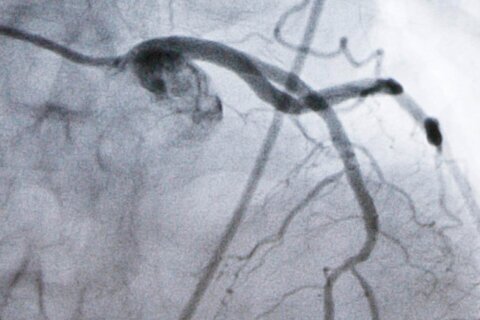WASHINGTON — Millions of people in this country suffer from eating disorders, and all this week the focus is on raising awareness.
No one knows exactly how many Americans are affected, since so many cases go unreported. But the National Eating Disorders Association says about 20 million women and 10 million men suffer from a clinically significant eating disorder at some point in their lives.
Even more concerning, studies have shown that one type of eating disorder — anorexia nervosa — has the highest mortality rate of any mental illness.
“These are important public health problems,” says Dr. Graham Redgrave, assistant director of the Eating Disorders Program at Johns Hopkins.
He says it’s crucial to identify people who are suffering — which is the theme of National Eating Disorders Awareness Week, which runs through Saturday.
Events are being held around the country at schools, community centers and work places, and people can use a confidential online screening tool to see whether they need help.
The good news is, treatment for eating disorders can be very effective, and, like most health conditions, the earlier a problem is addressed, the better.
Progress is being made in the lab, with researchers pondering tools such as brain imaging, as well as examining the role of stress and hormones on eating behaviors.
Recent big changes include a recalibration of the amount of weight someone who is anorexic can regain safely each week. Two pounds used to be the limit. But Hopkins has found a way to lift the target to four, enabling patients to reach a healthy weight faster.
Group therapy is another promising technique for patients with eating disorders — those who are further along in recovery can help persuade those just getting started that there is hope, and they can get healthy.
“That is much more powerful than simply hearing it from the treatment team,” Redgrave says.
There are no 12-step materials or assigned sponsors, but this approach to group therapy is similar to the one used by Alcoholics Anonymous and Narcotics Anonymous to help people battling addictions.
Redgrave says the common thread is the idea that group itself can lift the patient up, and provide the hope needed to fuel a very demanding journey.







